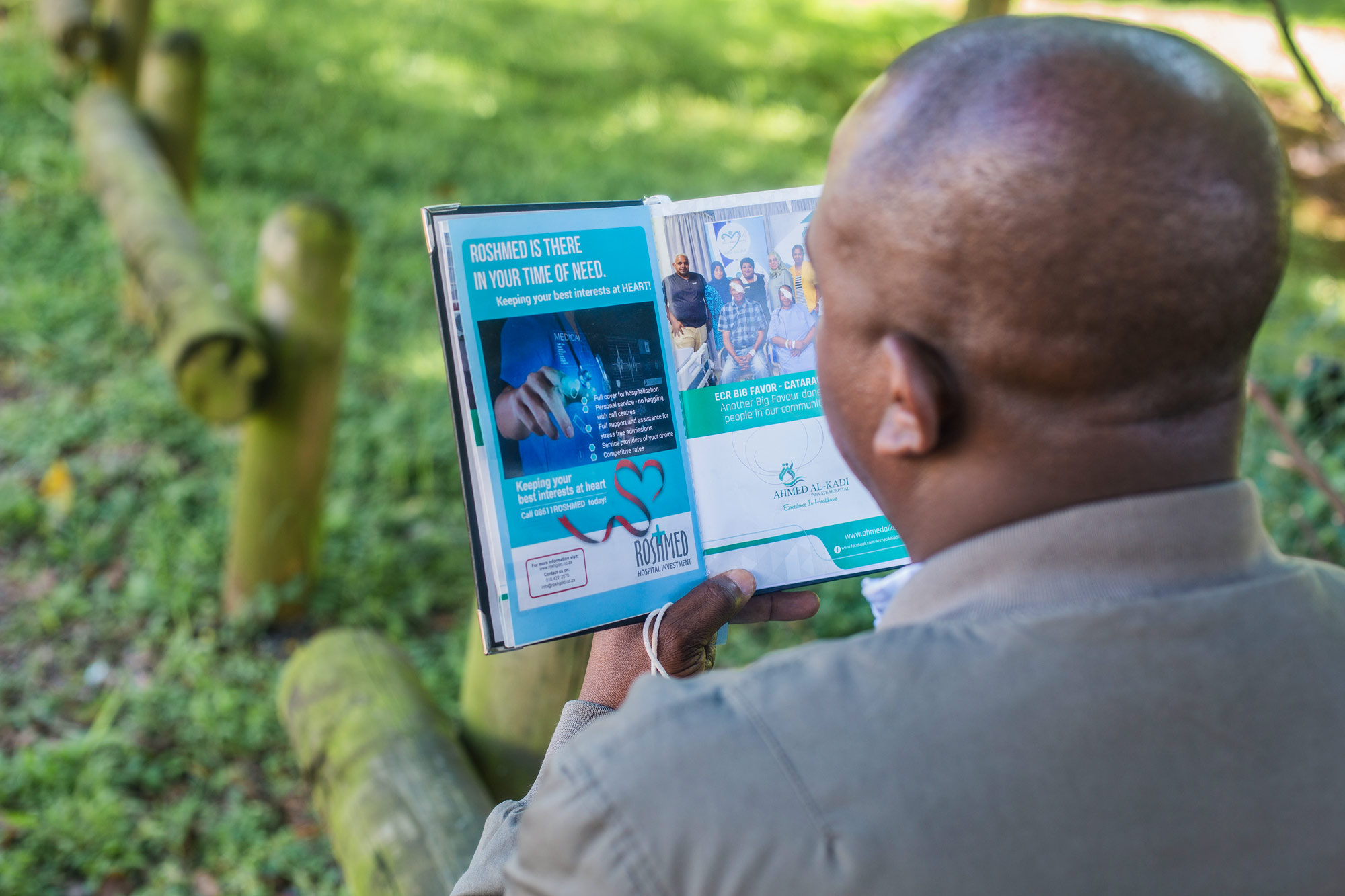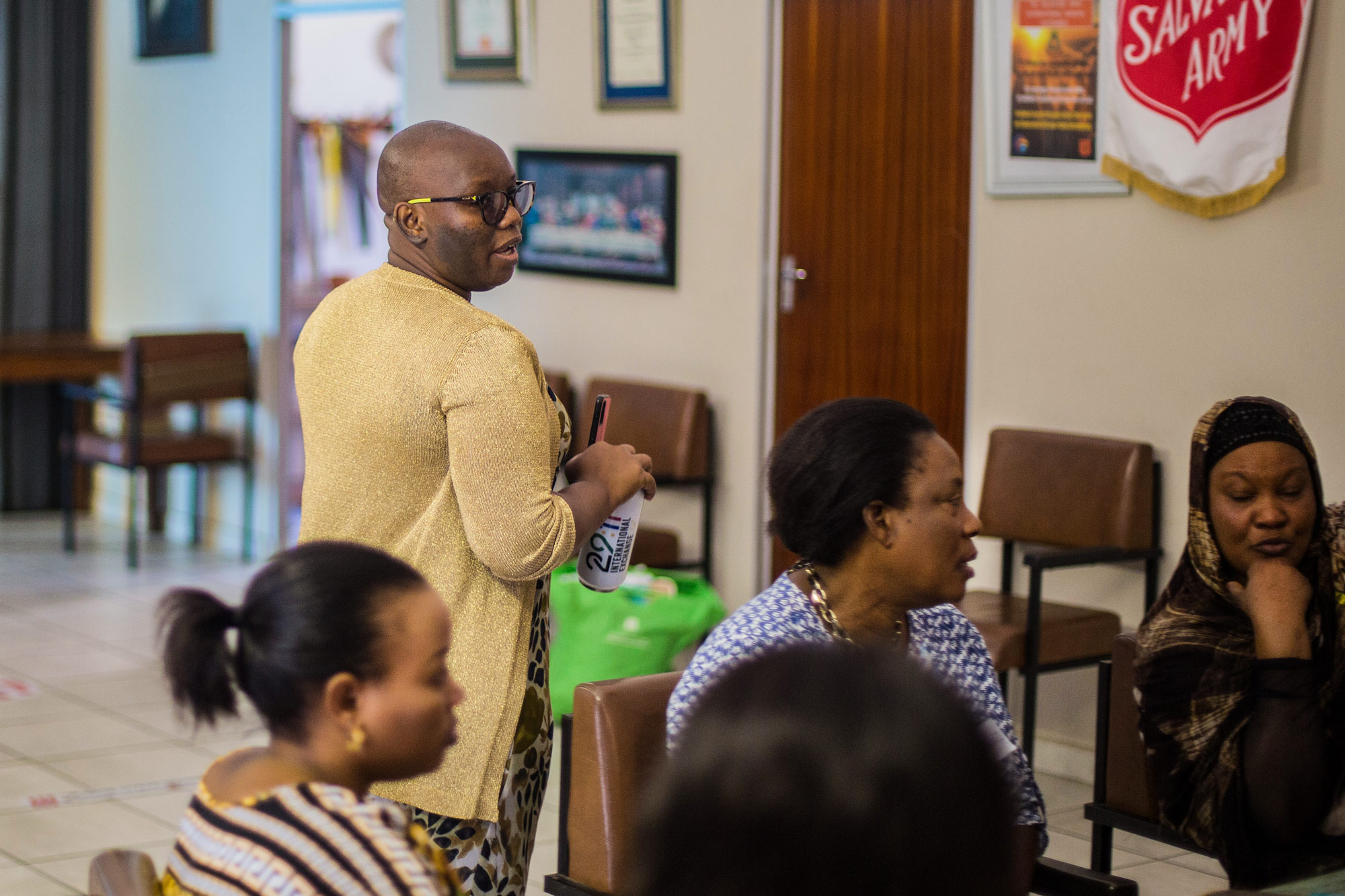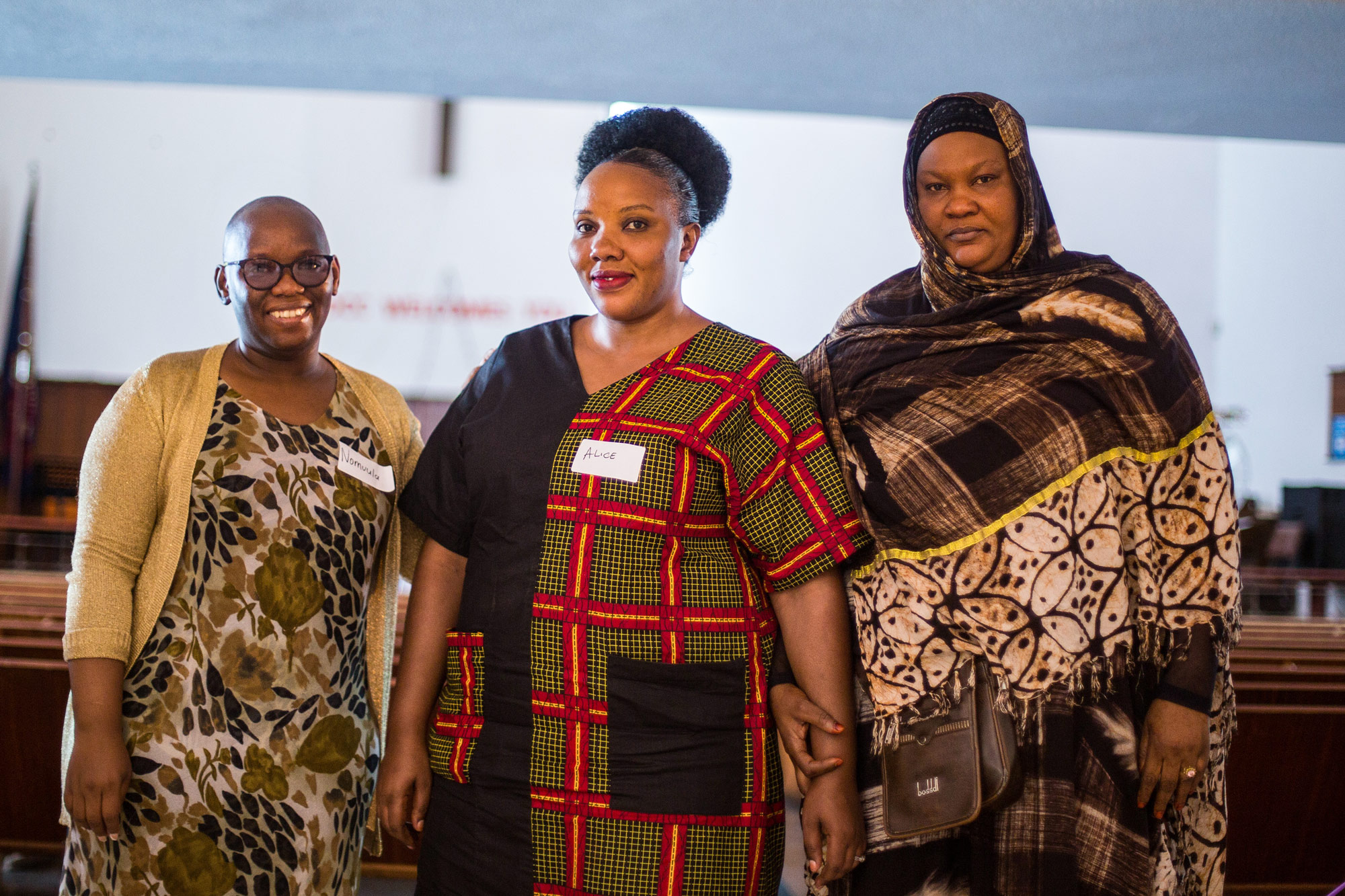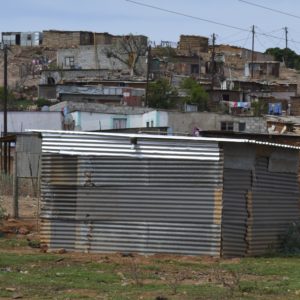Migrants’ anguish amplifies as xenophobes plot
Operation Dudula’s launch in Durban was temporarily halted, but it is imminent and migrants are living in fear of more xenophobic violence coming their way soon.
Author:
4 April 2022

While eThekwini municipality officials turned down an application by the vigilante anti-migrant movement Operation Dudula to launch in Durban on Sunday 27 March, its supporters have threatened on social media to “attack” later. Brigadier Jay Naidoo, spokesperson for the South African Police Service, said they were not on high alert and would await clarification to see if the launch goes ahead.
Operation Dudula has fuelled fears in a migrant community already under stress because many of its members have “escaped one hell to find another”. According to Durban-based psychologist Lottie Labys, about 30% of the refugees she interviewed while conducting research in the inner city had contemplated suicide as a result of xenophobic attacks.
Labys came to the city in 2013 to work with the University of KwaZulu-Natal’s department of psychiatry. The following year she and colleagues did a study, the first of its kind, on the mental health of refugees in Durban.

“The results were disturbing. We found mental distress was high. Almost half of the participants showed anxiety. More than half had symptoms of depression and almost a quarter were showing post-traumatic stress.”
Labys co-founded the Centre for Living, a non-profit organisation focusing on refugee mental health and wellbeing, in 2019. She says refugees often speak about fear, anger, stress and exploitation. They struggle to access healthcare and education, their lack of documentation prevents them from getting work, and they are threatened verbally and even attacked physically. They are also constant targets of crime because they cannot open bank accounts and must carry cash.
Labys says many refugees express a strong desire to return home despite the danger that it would entail, considering many have fled wars. Their anguish is profound. “People talk a lot about feeling sad and afraid,” she said.
Unease and uncertainty
Jean Butoki Madel, a refugee from Burundi who has lived in South Africa since 2008 as an asylum seeker, has been trying to formalise his official status since he arrived. After hundreds of emails to query whether he can stay in South Africa or must go, his status remains unresolved.
Madel’s wife is Congolese and the couple live in Durban with their two children. He is a teacher but works part-time as a translator. He says knowing that he and his family might be deported at any time compounds their anxiety. If he goes back home he might be killed, but in South Africa the family live in constant fear of xenophobic attacks.
“Most of us [migrants] are on WhatsApp groups. We share information about where it is safe to go. Anybody could be caught anywhere at any time,” said Madel.
The shared information is critical because it could mean the difference between life and death, but it also exacerbates fear and unease. “We are in touch for updates about where it is safe. Most are hiding at home. You can’t go to church or earn a living. It makes people feel a bit crazy.”

Madel’s wife, along with hundreds of other migrants, ran clothing and food stalls in the Durban city centre near The Workshop shopping centre until November 2020, when veterans of the ANC’s military wing Umkhonto weSizwe (MK) stormed the area, seized their goods and chased them away.
“Two of our friends were murdered there, but their bodies were not found. Another man died of a heart attack a few days later. We went to the municipality to report the incident. They told us to go back and fight MK. Can you believe that?”
Madel says 85% of migrants he knows work in the informal sector as traders. “We are not stealing anybody’s jobs. Local people know this. They can see us, but politicians are manipulating, blaming unemployment and crime on foreigners. It is an easy thing to do.”
Madel’s friend, Arcene Kashindi, fled the Democratic Republic of Congo in 2009. He is a barber. “I am scared,” he said. “You never know when you will be attacked. I have two children. I don’t know how we are going to live. We talk among ourselves. Anything could happen. We came here expecting peace and now we can be attacked anywhere for no reason. I am not taking anything from anyone. We sell peanuts to make a few cents.”
Support group
Nomvula Maneli, a South African, was among the 600 traders affected by the MK march. Afterwards she and 21 traders formed a support group that meets at a church in Glenwood. The members are counselled by Labys and have started a small cooperative that roasts and sells shelled peanuts.
“MK is Dudula, they are the same people,” Maneli said, adding that xenophobia is stoked by opportunists who use it as cover to rob others. “They accuse us locals of fronting for foreigners, but who are they to say somebody can be here or not? Some people have married migrants. This is not about papers. The system [of processing migrants] is broken and corrupted. This phobia will extend to tribalism if we don’t watch out.
“For years we worked in harmony with traders from Congo, Nigeria, Malawi, India. There was no problem. The loudest voices [preaching xenophobia] are not speaking for all of us.”
Related article:
The cooperative’s members say the group provides vital emotional support. “We laugh and forget about our fears when we are together,” said Riziki Ruhogora. Fellow member Alice Ndereyimane agreed. “We are mothers. Together we realise we have the same challenges.”
“We’re trying to find a solution,” added Maneli. “We’re tired of fighting.”
Madel says migrants are rallying together in tiny pockets, such as the peanut co-operative, to stave off the fear and uncertainty that create feelings of hopelessness. Small profits from the business are used to buy basics like bread.
Labys says refugees often struggle to retain dignity and hope. “One of the things that people lose when they’ve lost almost everything and they’re on the run to a new country for safety is a loss of meaning in their lives.”

Labys says there are likely at least two million refugees and asylum seekers in South Africa, and their feelings of helplessness and dislocation are made worse by untrue claims that they are stealing jobs.
“There is a lot of research in South Africa and the consensus is that the number in this country is not enough to impact the unemployment levels here. But it’s important to acknowledge that unemployment is a significant issue. It puts tremendous stress on people. The tragedy, though, is that refugees and locals share a lot in common in so far as trauma, discrimination and adversity are concerned.”
Labys teaches coping mechanisms and runs projects to build social cohesion, which are worthy. “But people don’t realise that simple things go such a long way to help. Things we do every day, the smallest gesture, can affect a stranger, especially a person who is scared or feeling out of place.”

